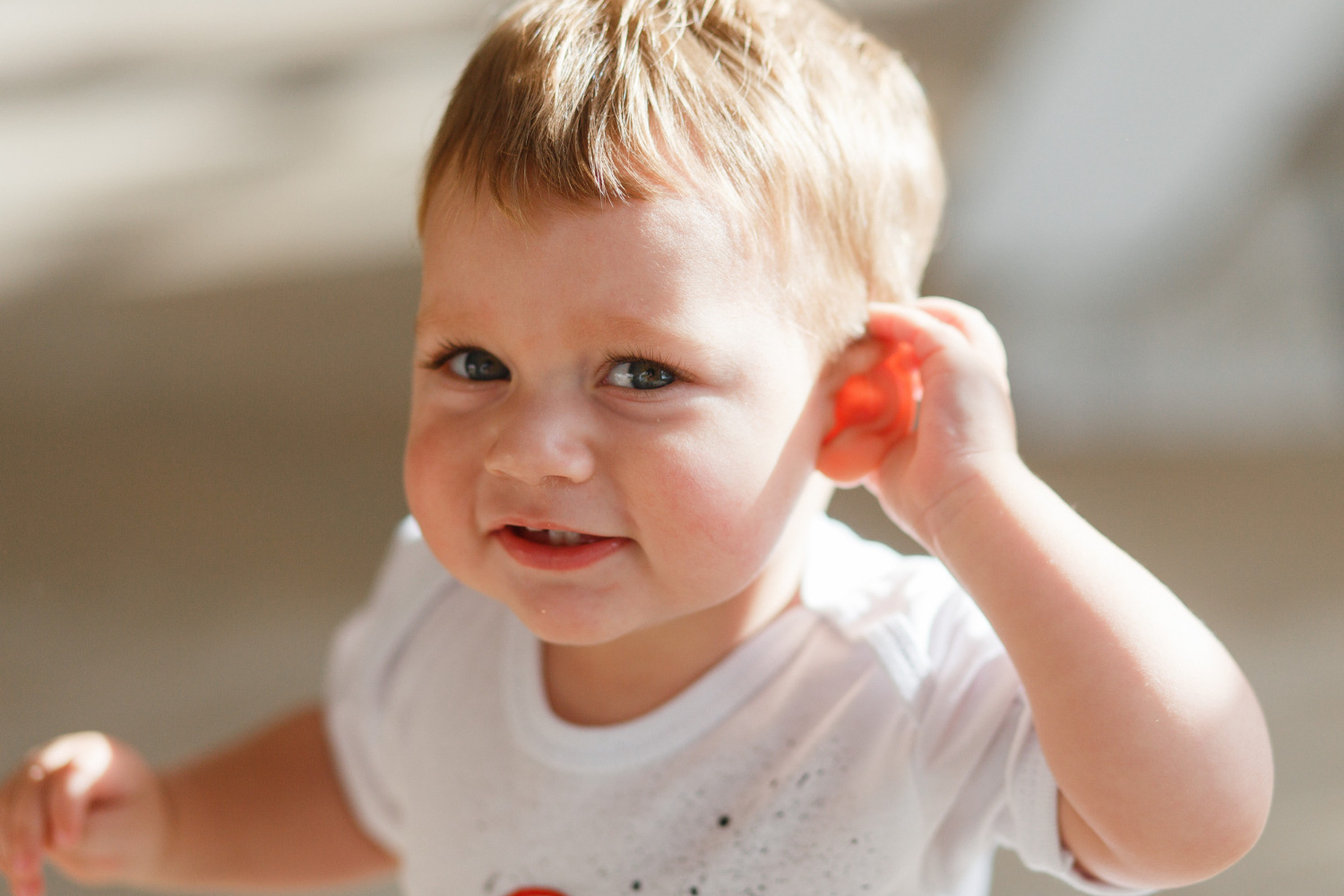
Congenital deafness is a condition present at birth, affecting a person's ability to hear. This condition can be caused by genetic factors, complications during pregnancy, or infections. Hearing loss ranges from mild to profound, impacting communication and development. Early detection and intervention are crucial for improving outcomes. Hearing aids, cochlear implants, and sign language are some tools and methods used to assist those with congenital deafness. Understanding this condition helps in providing better support and resources. Let's dive into 30 fascinating facts about congenital deafness that will broaden your knowledge and appreciation for this unique condition.
Key Takeaways:
- Congenital deafness, present at birth, can be caused by genetic factors or complications during pregnancy. Early detection and intervention are crucial for supporting children with hearing loss.
- Children with congenital deafness may experience delays in language and social skills. Treatment options like hearing aids and educational support can help them lead fulfilling lives.
What is Congenital Deafness?
Congenital deafness refers to hearing loss present at birth. This condition can be caused by genetic factors, complications during pregnancy, or issues during childbirth. Understanding congenital deafness helps in providing better support and treatment options.
- Genetic Causes: Around 50-60% of congenital deafness cases are due to genetic factors. Mutations in specific genes can lead to hearing loss.
- Syndromic vs. Non-Syndromic: Congenital deafness can be syndromic (associated with other symptoms) or non-syndromic (hearing loss is the only symptom).
- Connexin 26 Mutation: The most common genetic cause of congenital deafness is a mutation in the GJB2 gene, which encodes the protein Connexin 26.
- Autosomal Recessive Inheritance: Most genetic cases of congenital deafness follow an autosomal recessive inheritance pattern, meaning both parents must carry the gene mutation.
- Environmental Factors: Non-genetic causes include infections during pregnancy, such as rubella or cytomegalovirus, and complications during birth like lack of oxygen.
Early Detection and Diagnosis
Early detection of congenital deafness is crucial for effective intervention. Various screening methods and tests help identify hearing loss in newborns.
- Newborn Hearing Screening: Many countries have mandatory newborn hearing screening programs to detect hearing loss early.
- Otoacoustic Emissions (OAE): This test measures sound waves produced in the inner ear to check for hearing loss.
- Auditory Brainstem Response (ABR): ABR tests the hearing nerve's response to sounds, helping diagnose hearing loss in infants.
- Behavioral Audiometry: For older infants and toddlers, behavioral audiometry assesses their response to sounds.
- Genetic Testing: Identifying specific gene mutations can confirm a diagnosis of congenital deafness and guide treatment.
Impact on Development
Hearing loss can significantly affect a child's development, particularly in language and social skills. Early intervention can mitigate these effects.
- Language Development: Children with congenital deafness may experience delays in speech and language development.
- Social Skills: Hearing loss can impact social interactions, making it harder for children to communicate with peers.
- Cognitive Development: Some studies suggest that untreated hearing loss can affect cognitive development.
- Emotional Well-being: Children with hearing loss may face emotional challenges, including frustration and isolation.
- Educational Impact: Hearing loss can affect academic performance, making early support essential.
Treatment and Intervention
Various treatment options and interventions can help children with congenital deafness lead fulfilling lives. These range from medical devices to educational support.
- Hearing Aids: Amplify sounds to help children with mild to moderate hearing loss.
- Cochlear Implants: Surgically implanted devices that provide a sense of sound to those with severe hearing loss.
- Speech Therapy: Helps children develop communication skills.
- Sign Language: An essential tool for communication, especially for those with profound hearing loss.
- Educational Support: Specialized programs and resources can help children with hearing loss succeed academically.
Living with Congenital Deafness
Living with congenital deafness involves adapting to challenges and finding ways to thrive. Support from family, friends, and the community is vital.
- Family Support: Families play a crucial role in supporting children with hearing loss.
- Community Resources: Various organizations offer resources and support for individuals with hearing loss.
- Assistive Technology: Devices like FM systems and captioning services can aid communication.
- Advocacy: Advocating for accessibility and inclusion is important for individuals with hearing loss.
- Mental Health: Addressing mental health needs is crucial for overall well-being.
Research and Future Directions
Ongoing research aims to improve understanding and treatment of congenital deafness. Advances in genetics and technology hold promise for the future.
- Gene Therapy: Research is exploring the potential of gene therapy to treat genetic causes of hearing loss.
- Stem Cell Therapy: Scientists are investigating the use of stem cells to regenerate damaged hearing cells.
- Improved Cochlear Implants: Advances in technology are making cochlear implants more effective and accessible.
- Early Intervention Programs: Research supports the effectiveness of early intervention in improving outcomes for children with hearing loss.
- Public Awareness: Increasing awareness about congenital deafness can lead to better support and resources for affected individuals.
Understanding Congenital Deafness
Congenital deafness affects many lives, but awareness can make a big difference. Knowing the causes, symptoms, and treatment options helps in supporting those with this condition. Early detection is key, as it can lead to better outcomes through timely interventions like hearing aids or cochlear implants. Genetic factors play a significant role, so family history matters. Environmental factors, such as infections during pregnancy, also contribute.
Education and support systems are crucial for individuals and families dealing with congenital deafness. Schools and communities can provide resources to help children develop language and social skills.
By spreading knowledge, we can foster a more inclusive society where everyone gets the chance to thrive. Understanding congenital deafness isn't just about facts; it's about empathy and action. Let's continue to learn and support each other.
Frequently Asked Questions
Was this page helpful?
Our commitment to delivering trustworthy and engaging content is at the heart of what we do. Each fact on our site is contributed by real users like you, bringing a wealth of diverse insights and information. To ensure the highest standards of accuracy and reliability, our dedicated editors meticulously review each submission. This process guarantees that the facts we share are not only fascinating but also credible. Trust in our commitment to quality and authenticity as you explore and learn with us.


